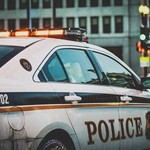
Donald Trump’s tough-on-crime rhetoric took a surprising turn on Sunday, when the presidential candidate declared that all it would take to curb crime across the country is one “rough, nasty day”, or even one “rough hour” on the part of law enforcement.
Advertisement
Speaking at a Sunday rally in Erie, Pennsylvania, former President Trump said that police needed one violent day to restore order.
“What the hell is going on?” he said. “See, we have to let the police do their job [crowd cheers]. And if they have to be extraordinarily rough [crowd cheers louder]. And you know, the funny thing with all of that stuff, look at the department stores, same thing, they walk into it. You see these guys walking out with air conditioners, with refrigerators on their back. The craziest thing. And the police aren’t allowed to do their job. They’re told if you do anything, you’re gonna lose your pension, you’re gonna lose your family, your house, your car.
“You know, if you had one day, like one real rough, nasty day,” he said, during a section of the speech about how left-wing politicians are allegedly preventing police from enforcing the law.
“One rough hour, and I mean real rough, the word will get out and it will end immediately. End immediately. You know, it’ll end immediately.”
Over at Hot Air, my colleague Jazz Shaw points out a few of the practical problems with Trump’s bad idea.
Among the many problems with Trump’s proposed “purge” (aside from being blatantly unconstitutional) is that it simply wouldn’t work. When you make all crime legal, you make crimes against innocent civilians legal as well as those committed against hardened criminals. We like to take comfort in the fact that the law-abiding outnumber the criminal element in America by a wide margin, but there are still far too many criminals out there. And they tend to be better at it because they have so much more practice under their belts. Also, if you allow that to go on for 24 hours, how sure are you that you’ll be able to “turn it off” one day later? Once that genie is out of the bottle it might be very difficult to stuff it back inside.
Advertisement
Not to mention the fact that in deep-blue cities like New York, San Francisco, and Chicago, responsible gun owners could very well be subject to the “extraordinarily rough” treatment by some law enforcement.
If Kamala Harris is the candidate who says too little, Trump is the candidate who says too much. I don’t think his hyperbolic comments on Sunday represent a genuine plan. Instead, I think he’s channeling the frustration of many Americans who, despite official statistics showing violent crime plummeting in many U.S. cities, don’t feel any safer than they did last year or the year before.
But there’s no need to shred the Constitution, even for a day, in order to get serious about violent crime. The first step is to simply focus on the relatively few number of individuals in any given city who are driving those crimes; a strategy known as targeted deterrence that’s paying off in cities like Baltimore, Detroit, and San Antonio.
San Antonio instead is leaning into a three-phase Violent Crime Reduction Plan developed by criminologists at the University of Texas at San Antonio and also deployed in Dallas, Salt Lake City and Tacoma, Washington.
The strategies are decades old, but they’ve never been employed together in quite this way, UTSA criminologist and Professor Michael Smith said, explaining: “We wanted to cherry-pick the best … and package them together in a single strategic plan.”
So far, only the first phase is complete in San Antonio: a “hotspot policing” effort that raises police visibility in parts of the city linked to crime, Smith said. Phase two, now in its infancy, and phase three will address underlying conditions that contribute to crime, he added.
For phase one, officials mapped San Antonio to a 300-meter-by-300-meter grid, then analyzed which of its 133,000 cells see the most violent crime and when, Smith told CNN. Officers in patrol cars with lights flashing then are posted in those places for 15 minutes at peak times. Every 60 days, the grids are reevaluated and police resources shifted to cover the toughest 35 or so cells, Smith said.
The result was a 37% decrease in violent crime last year in high crime areas compared with the year prior, an improvement UTSA criminologists and the city’s police department are confident contributed to an overall 7.3% reduction in violent crime in the city in 2023, the UTSA report said.
“When this plan first rolled out, not a whole lot of people were happy with it because it just seemed too simplistic and – again, quite candidly – kind of boring,” San Antonio Police Chief William McManus told the city’s Public Safety Committee in April, CNN affiliate KSAT reported. “But the fact of the matter is, it’s working, and I think everybody has gotten used to it by now.”
Advertisement
San Antonio is using a geographic approach instead of identifying specific offenders, but they’re still focused on the most dangerous parts of the city, and that strategy is paying off.
As McManus said, the strategy isn’t necessarily exciting, but it works. We don’t need to infringe on the Second Amendment to fight crime, as Kamala Harris wants, and we don’t need to suspend our Fourth Amendment rights and allow police to get “extraordinarily rough”, as Trump suggested on Sunday. Even if Trump’s comments were just a riff on public safety not meant to be taken literally, he should be talking about what can be done to fight crime while adhering to the Constitution, which also offers a stark contrast to Harris’s approach of fighting crime by infringing on the right to keep and bear arms.

